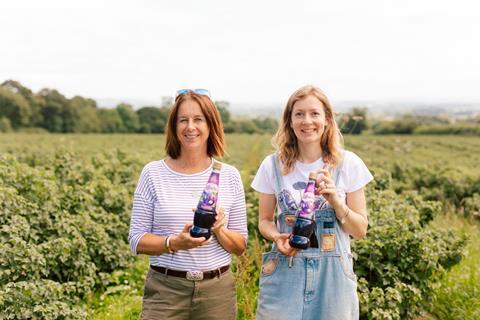Hot, dry summer causes difficulties for producers as sector invests in climate-resilient varieties

This year’s hot, dry summer made for a challenging blackcurrant season, with fruit ripening unevenly and falling off the bushes before harvesting, according to the Blackcurrant Foundation.
The UK producers’ association reported that growers were not prepared for this summer’s record temperatures, and the driest July since 1911 resulted in a “significant lack of moisture in the ground”.
The impact of the extreme conditions was felt most acutely in the South East and East Anglian, but for other UK growers, the harvest has been relatively normal.
Ribena, which takes 90 per cent of the UK blackcurrant crop, is forecast to receive over 10,000 tonnes of fruit this summer.
Jo Hilditch, chair and spokesperson for the Blackcurrant Foundation, said: “A main concern was that berries were not able to cling on to the bushes and just fell to the ground before the harvesters came through.
“Our harvest still requires some manual labour, despite being a largely automated process thanks to machinery, and the heat made it much more difficult for pickers, who started at 4.30am some mornings.
“Towards the end of the season, some varieties suffered due to a lack of winter chill, which made for some unevenly ripened fruit in some of the later loads that went to be pressed.”
Harriet Prosser, agronomist at Suntory Beverage and Food in Great Britain and Ireland, added: “It has been another challenging UK blackcurrant harvest, but for very different reasons. Last year we had frosts at flowering and a very wet harvest; this year we had a good spring but an incredibly hot, dry summer.
“We have such a small window of opportunity to pick these juicy berries, and this year our growers experienced some of the highest temperatures ever recorded in the UK right in the middle of the harvest [which began on 3 July in Somerset].
“They have gone above and beyond, toiling away, with several opting for night harvesting with lights to get the crop in quicker and make sure the blackcurrants didn’t spoil in the heat.”
Looking to the future, The Blackcurrant Foundation’s growers have been trialling new varieties of climate-resilient blackcurrants with the aim of combatting factors such as prolonged dry spells, warm winters, and extreme heat during the summer.
Nearly £11 million of investment from Lucozade Ribena Suntory has so far aided research and development into new varieties, with some harvested this year that have been 20 years in the making.
“Hopefully this will safeguard the future of the crop and help secure the livelihoods of UK blackcurrant growers,” the Blackcurrant Foundation said.



